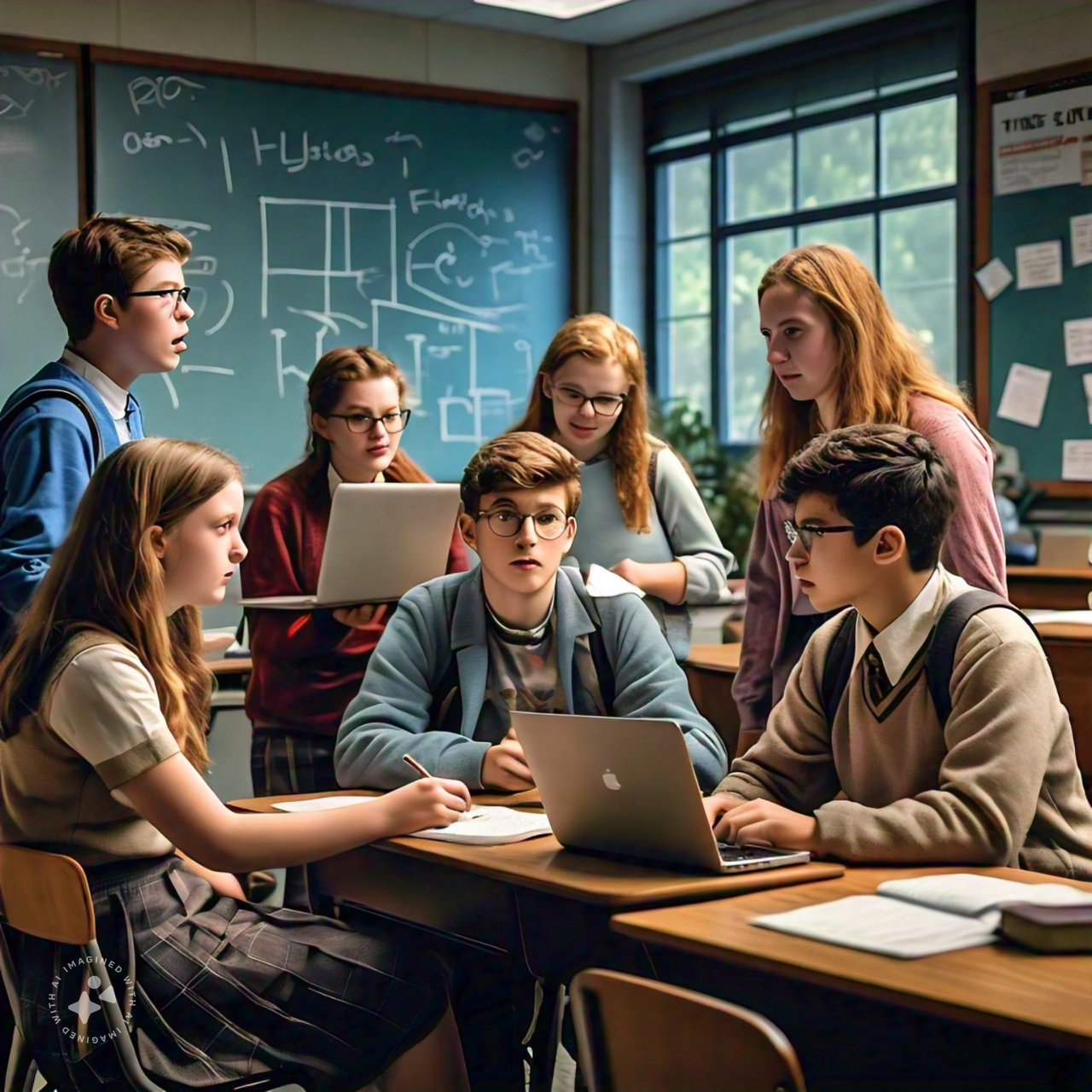Embracing Media & Information Literacy in the Digital Age: Reflections on the Scholastic Outreach Program
On November 15, 2024, the University of the Cordilleras became a hub of transformative learning as it hosted the Scholastic Outreach Program on Media & Information Literacy (MIL). This seminar tackled pressing issues in today’s digital landscape, focusing on Artificial Intelligence (AI), digital citizenship, responsible media consumption, and cybersecurity. As a communication student navigating an ever-evolving digital world, I walked away with a renewed sense of purpose and responsibility. Here’s what stood out to me and why these discussions are vital for our generation.
The Age of AI: Bane or Boon?
One of the most impactful moments of the seminar was Dr. Rachel Khan’s compelling discussion, AI: Bane or Boon? She addressed how AI has become a double-edged sword in media and information literacy. On one hand, AI enhances accessibility, revolutionizes content creation, and provides powerful fact-checking tools. On the other, it amplifies the spread of misinformation, creates echo chambers, and poses ethical dilemmas in privacy and content authenticity.
Dr. Khan’s insights made me realize that while AI shapes modern media consumption, it requires us to sharpen our critical thinking skills. For instance, AI-driven algorithms curate content tailored to our interests, but they also risk isolating us in “filter bubbles.” As students and future media practitioners, understanding this dynamic is crucial for fostering diverse perspectives and informed decision-making.
The Essentials of Digital Citizenship
Digital citizenship emerged as another cornerstone of the seminar. It’s not just about existing online but doing so responsibly—engaging ethically, critically, and safely. The speakers emphasized that being a responsible digital citizen means understanding the power of media, recognizing biases, and verifying sources before sharing information.
AI plays a pivotal role here as both a tool and a challenge. While AI-driven platforms help us access information more efficiently, they also demand vigilance against AI-generated fake news, deepfakes, and biased algorithms. Armed with MIL, we can harness AI to promote truth and counter misinformation, aligning with the seminar’s call for responsible media consumption.
The Cybersecurity Imperative
In a world dominated by digital interactions, cybersecurity is no longer optional—it’s a necessity. The seminar’s discussion on digital hygiene underscored the importance of safeguarding personal information against cyber threats. AI, though a powerful ally in detecting and preventing cyberattacks, can also be weaponized to compromise data and exploit vulnerabilities.
One practical takeaway was the need for good digital hygiene practices:
- Regularly updating passwords and software.
- Being cautious about sharing personal information.
- Using multi-factor authentication and secure networks.
The speakers reminded us that our digital safety is intertwined with AI’s advancements. While AI strengthens defenses, it also requires ethical oversight to prevent misuse, particularly in hacking or identity theft.
Fact-Checking in the AI Era
The rise of AI-generated content has made fact-checking more critical than ever. Tools like ChatGPT or automated news generators can churn out plausible but inaccurate information. The seminar highlighted the significance of cross-referencing multiple sources, using fact-checking websites, and employing critical judgment when encountering sensational claims online.
This struck a chord with me, especially as a communication student responsible for shaping narratives. We need to be vigilant in our media consumption to ensure that the content we create and share contributes to a well-informed society.
Why Media & Information Literacy Matters
MIL is the foundation for thriving in the digital age. It equips us to decode media messages, understand their influence, and engage responsibly in the digital space. In a world where AI permeates every facet of communication, MIL is our compass for navigating ethical dilemmas, ensuring transparency, and fostering inclusivity.
Through the lens of AI, MIL transforms into a dynamic toolset—one that allows us to leverage AI’s potential while mitigating its risks. By embracing MIL, we can bridge gaps in understanding, encourage informed dialogue, and inspire others to adopt responsible online behaviors.
Final Thoughts
The Scholastic Outreach Program reminded me that as students, we are at the forefront of this digital revolution. AI, cybersecurity, and digital citizenship are not just abstract concepts—they are realities shaping how we consume, create, and interact in the media landscape. It is up to us to wield these tools with integrity and purpose.
Our journey toward becoming informed digital citizens starts with awareness, critical thinking, and a commitment to ethical practices. Together, let’s ensure that the digital age becomes a boon, not a bane, for future generations.
As I left the seminar hall, I felt a renewed sense of responsibility—not just as a communication student but as an empowered digital citizen ready to navigate the complexities of a media-saturated world.
Cristine Aromin








Comments
Post a Comment